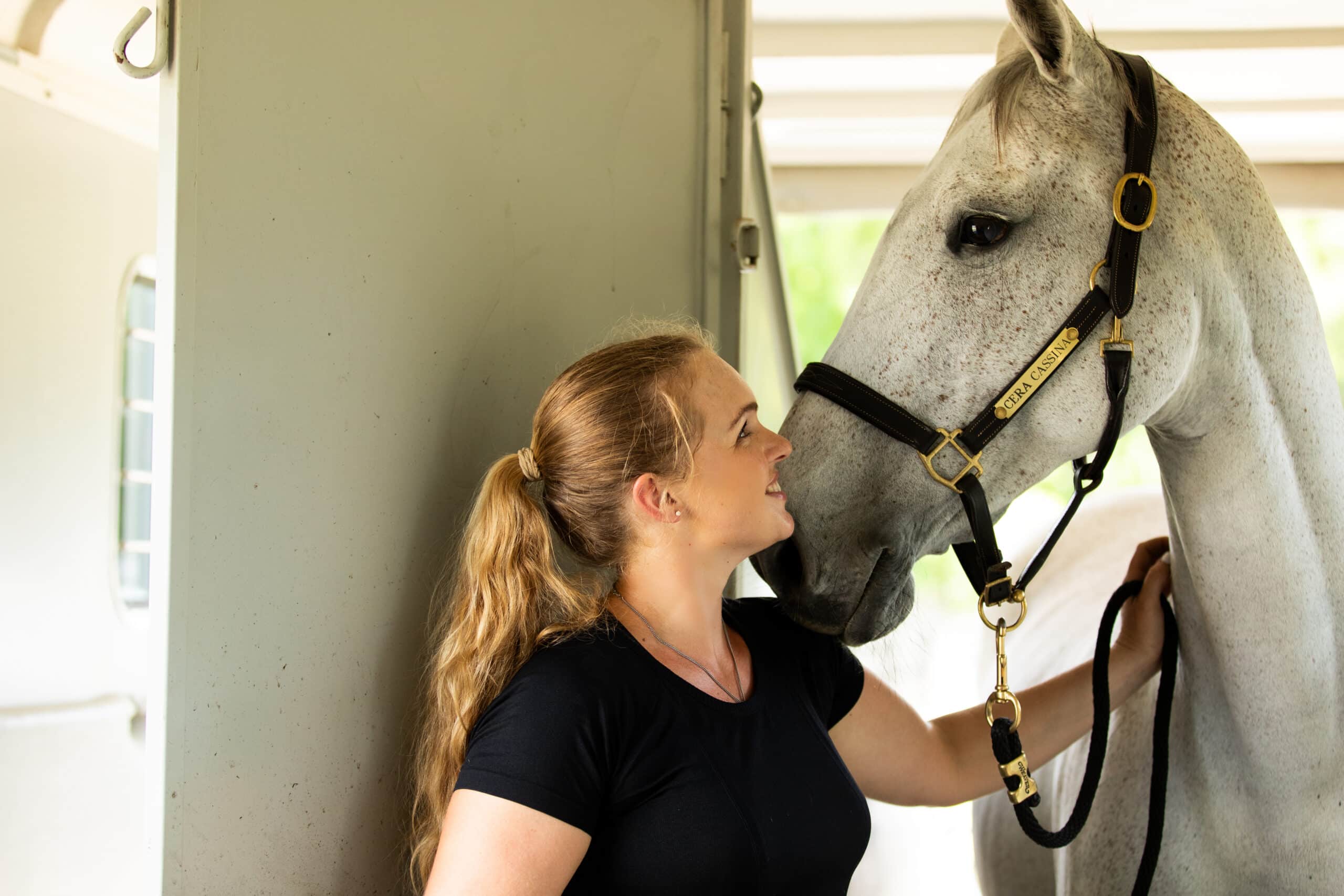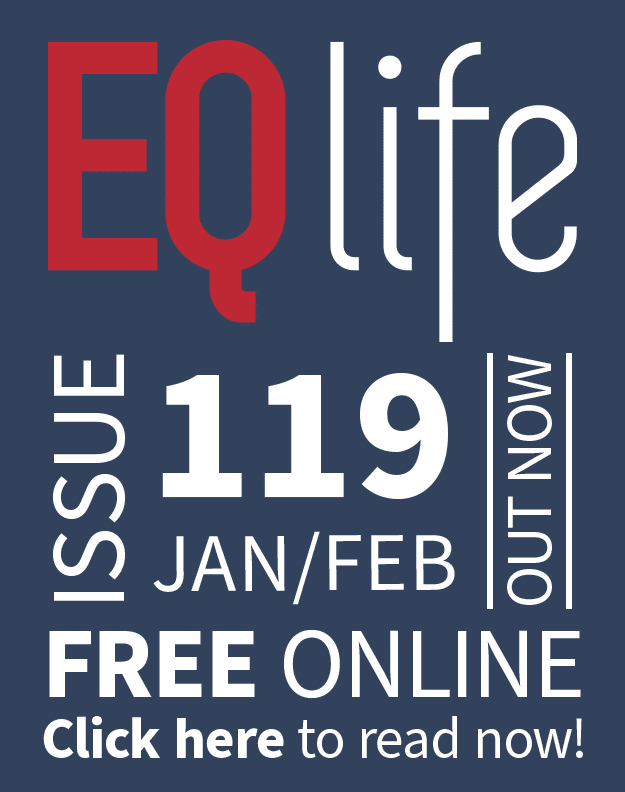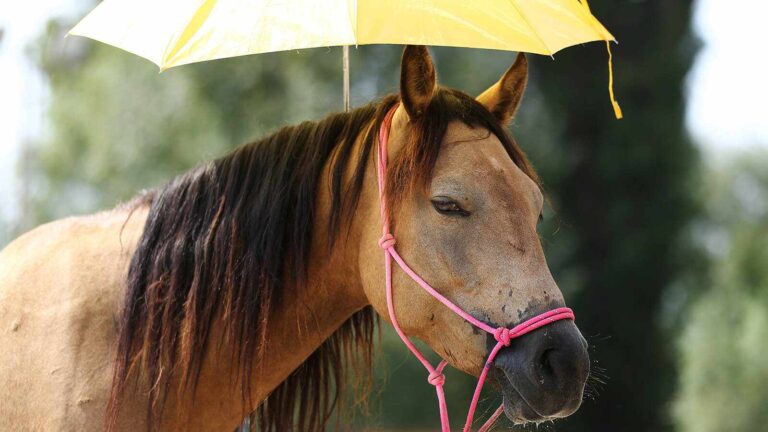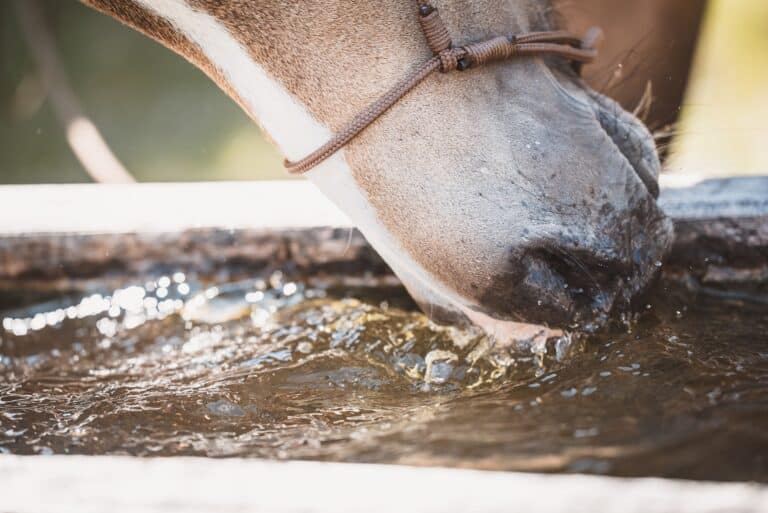Whether it’s for competition, training, or relocation, there are many reasons a horse may need to travel long distances. Trips of more than four hours can be demanding, and it’s important to take steps to ensure your horse arrives in good condition. Even horses that are usually calm and low-stress travellers can feel the effects of extended road or air transport.
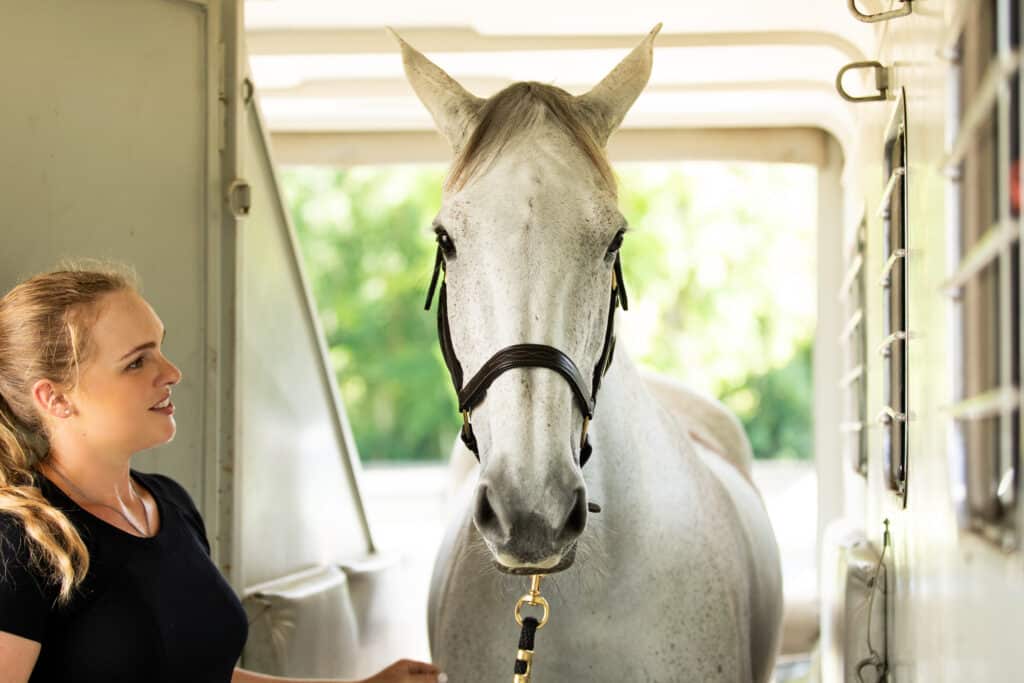
For longer trips, scheduled breaks are essential. Aim to stop every three to four hours to allow horses to rest, lower their head to clear their airways, drink, and eat. Maintaining your horse’s digestive system is also key. Try to continue normal feeding routines to minimise stress. Offer hay and water frequently; plenty of forage helps buffer stomach acid, reduces stress, and keeps horses occupied. Provide small, regular feeds rather than large meals, and avoid high-starch or grain-heavy feeds immediately before travel.
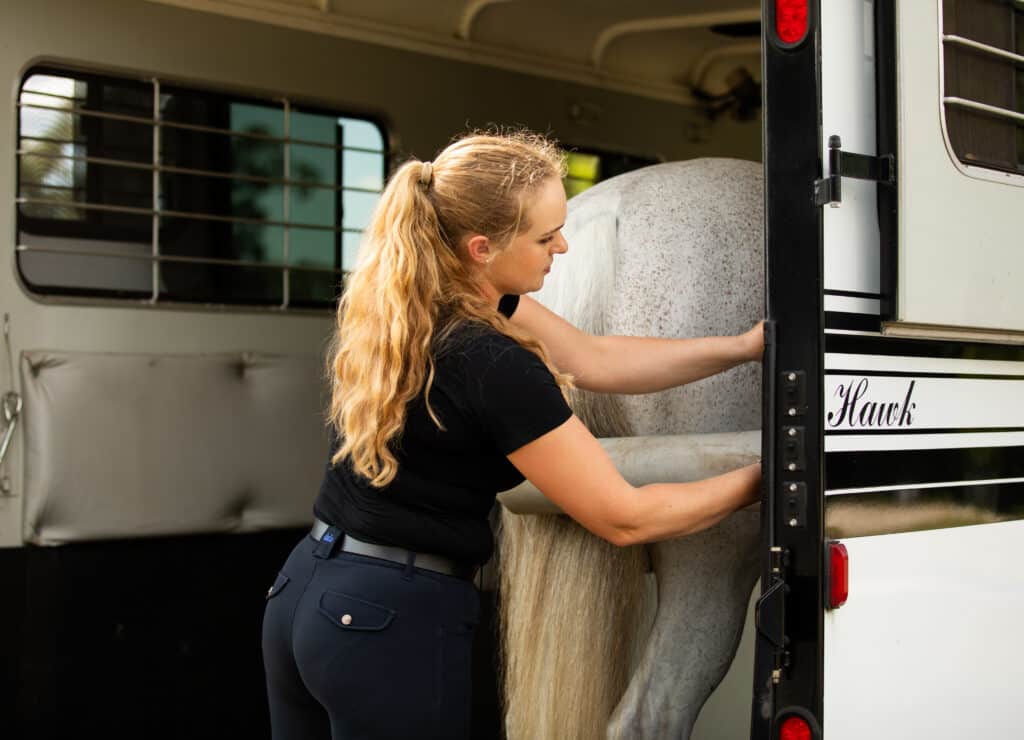
A gut health supplement such as Poseidon Animal Health’s DigestiveEQ can help buffer stomach acid, support digestion, and maintain a healthy microbiome, making it an excellent foundation for horses that travel. For horses needing additional support, DigestiveHP offers the same benefits with increased gastric buffering, higher levels of postbiotics and amino acids, and an added digestive enzyme. Horses that travel often, compete regularly, or experience frequent stress may particularly benefit from DigestiveHP.
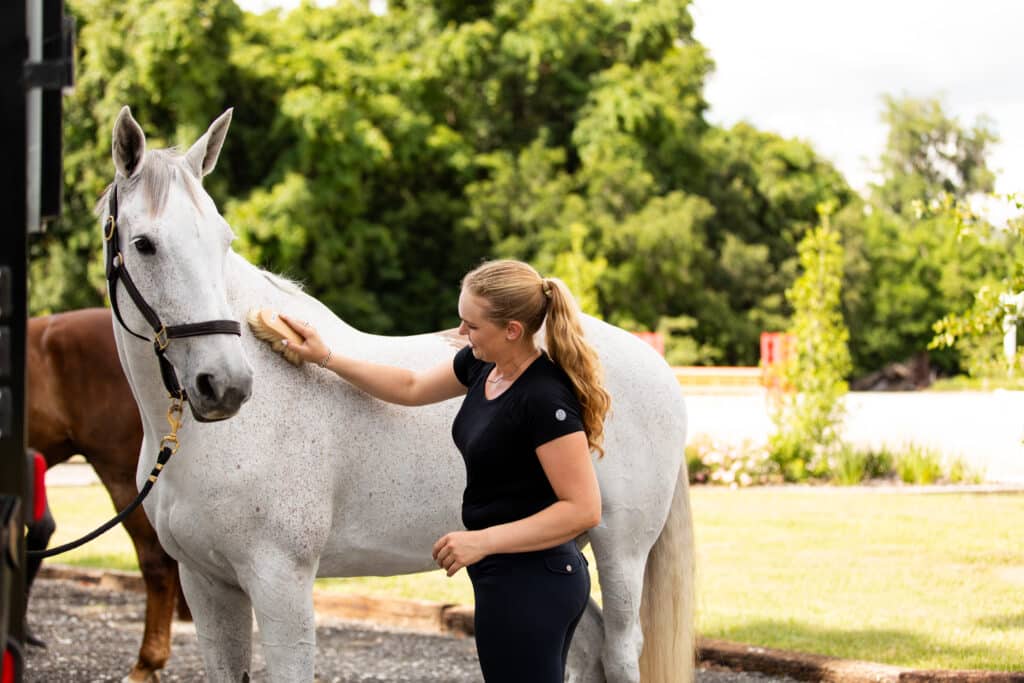
For additional protection during stressful times like transport, pairing DigestiveEQ or DigestiveHP with StressPaste is recommended. StressPaste provides immediate support to help keep your horse calm, hydrated, and comfortable. Administer one serve around 30–60 minutes before loading, and if travelling for more than four hours, repeat with a half serve every four hours.
Always keep an eye out for indicators that your horse may not be coping well. Warning signs include reduced appetite or water intake, loose manure, colic symptoms, irritability or reluctance to load, gastric discomfort (yawning, teeth grinding, stretching), a dull coat, or reduced energy.
By planning ahead, supporting gut health, and monitoring your horse closely, you can help ensure they arrive at their destination happy, healthy, and ready for what lies ahead.
Got a gut health question? If you’d like to ‘Ask Poseidon’, email your questions to info@eqlife.com.au and you may just feature in our next article!
Click here to learn more about Poseidon Animal Health.
Read more about the importance of gut health in horses via the June issue of Equestrian Life here.
